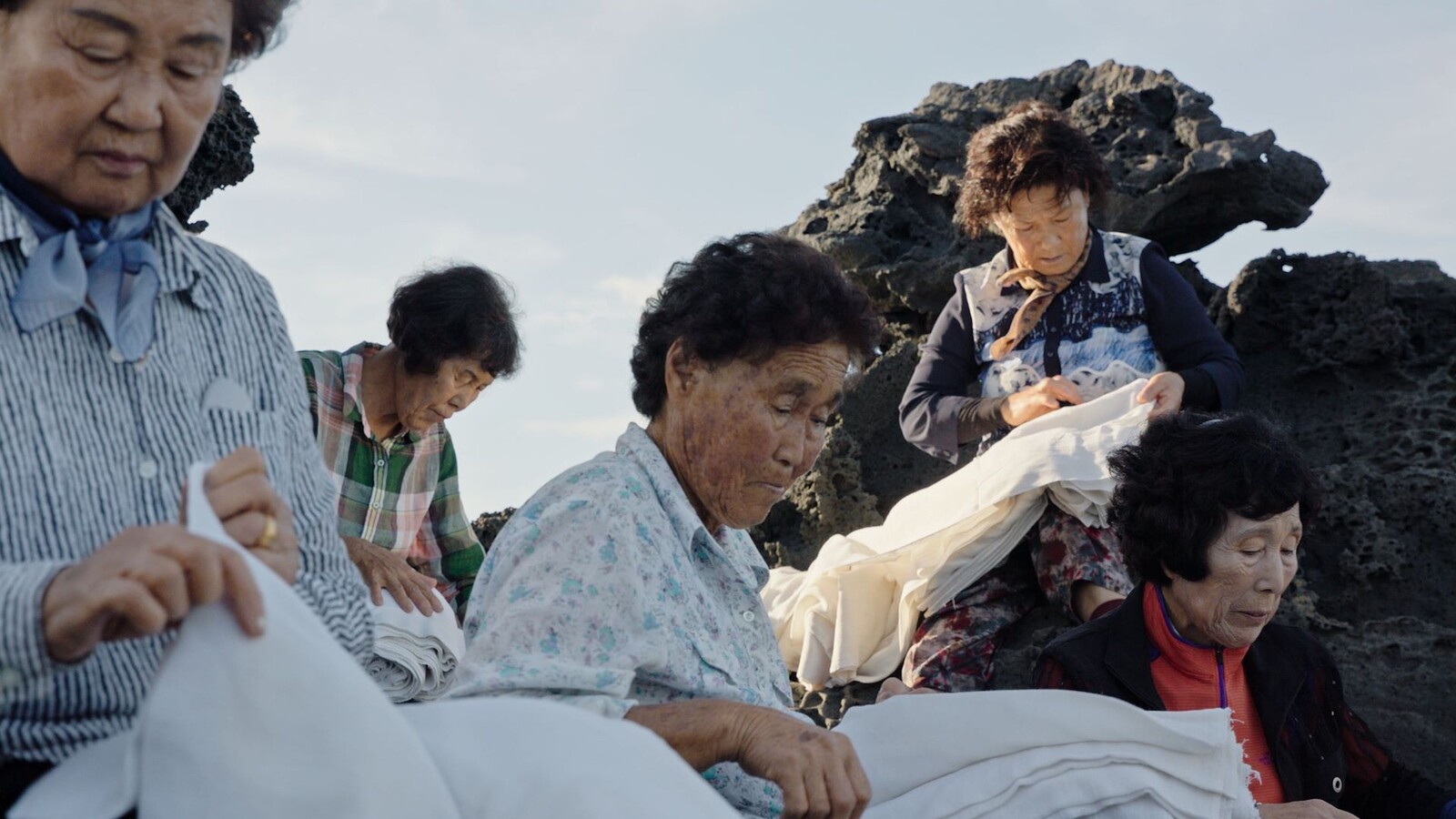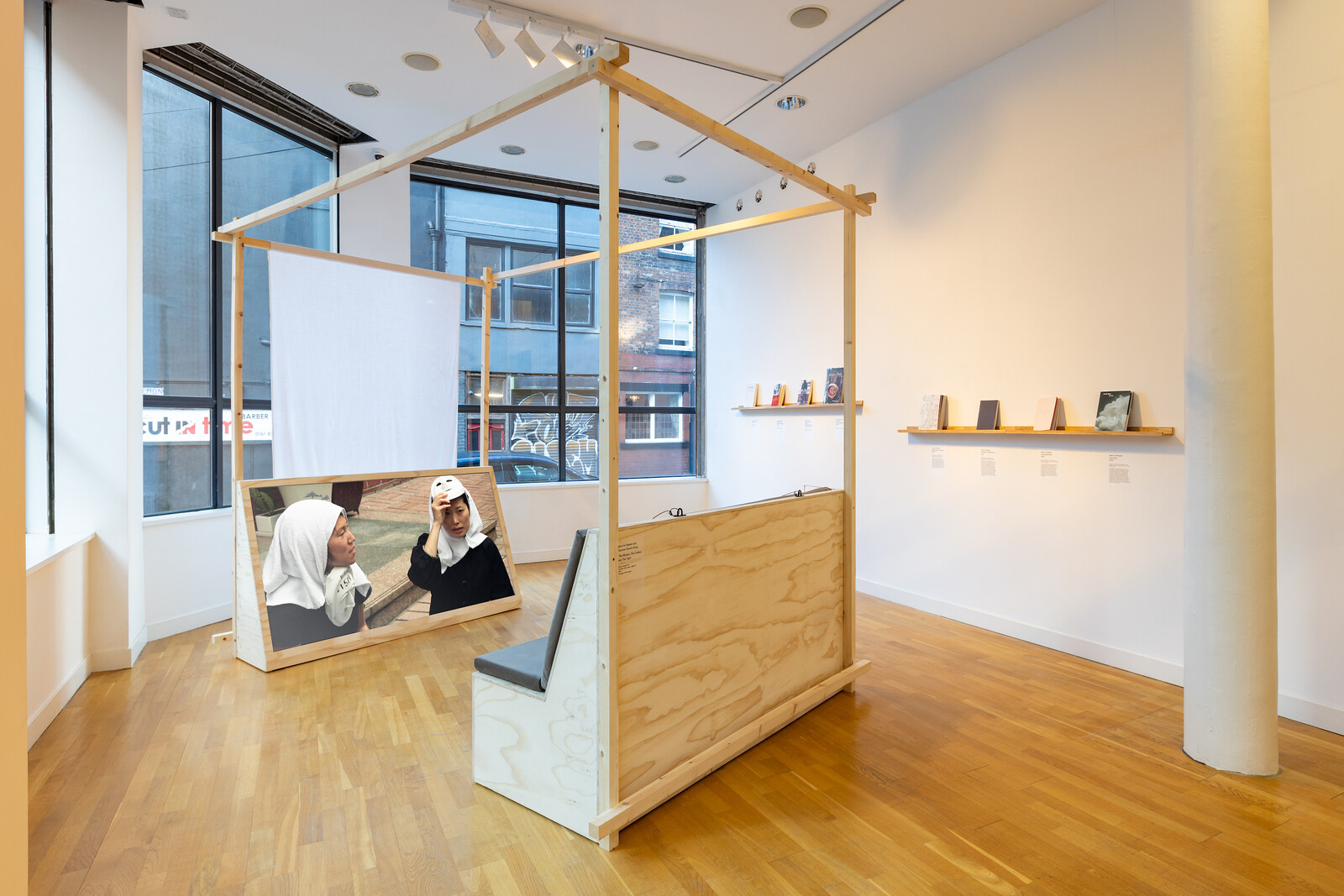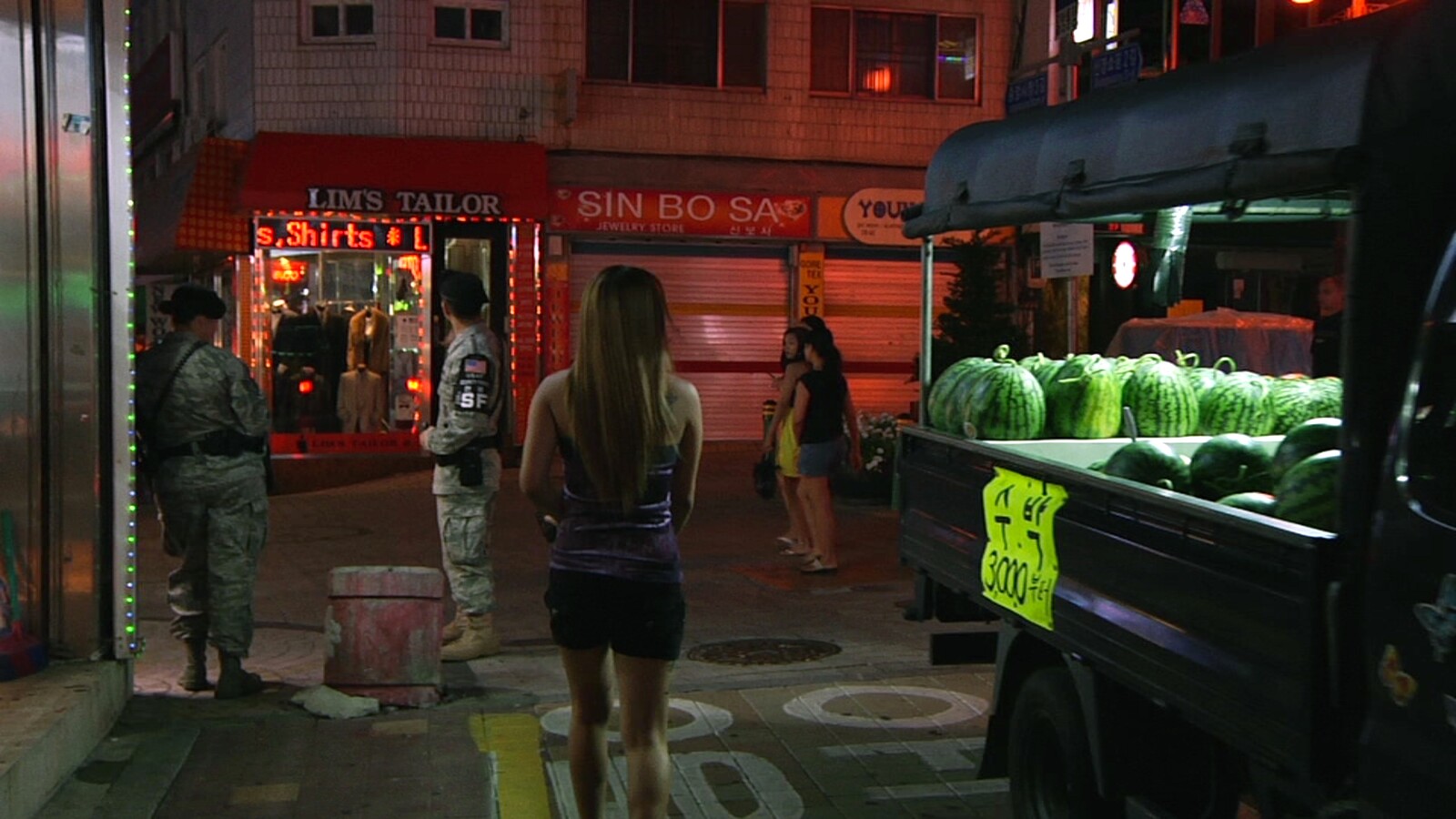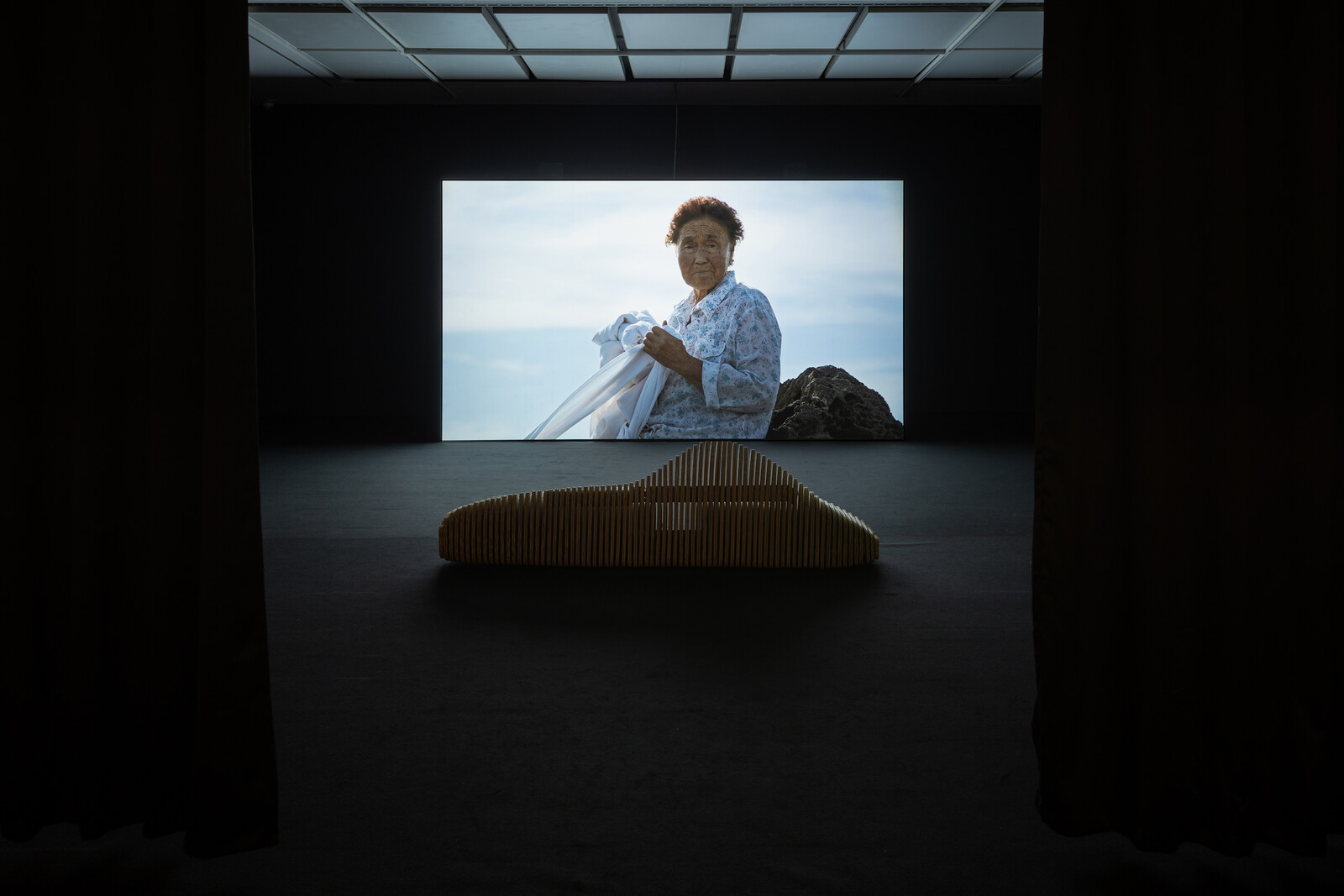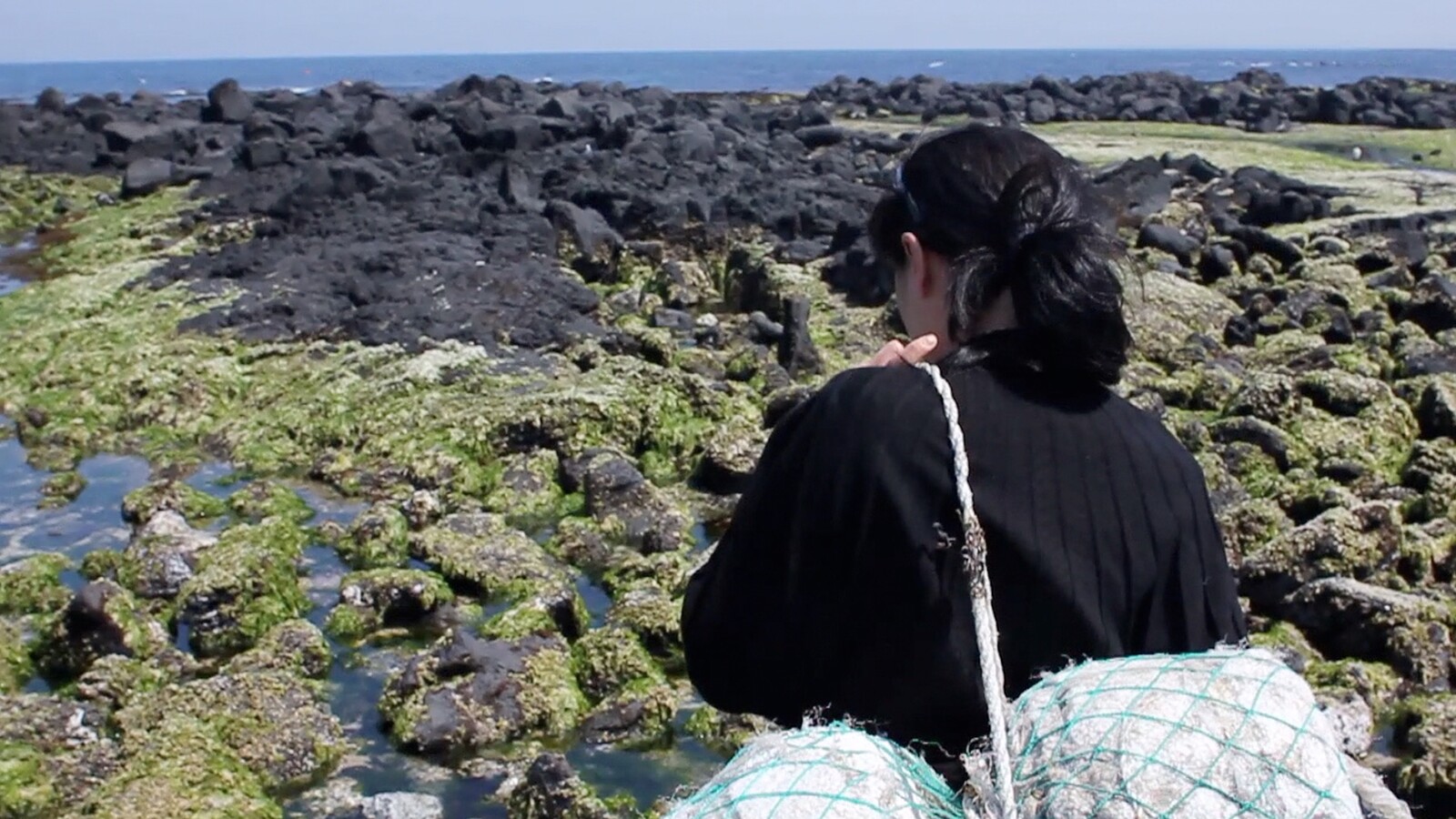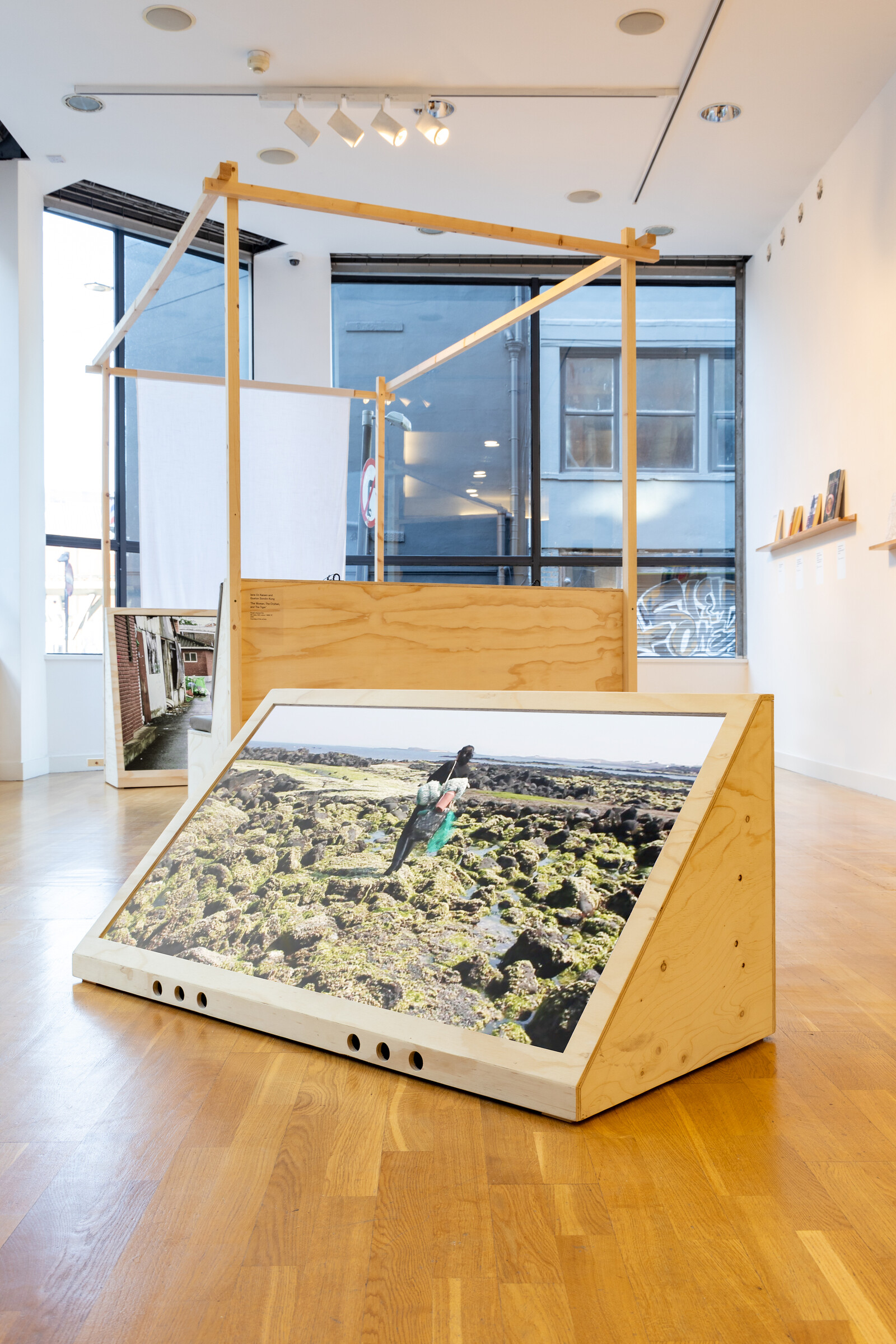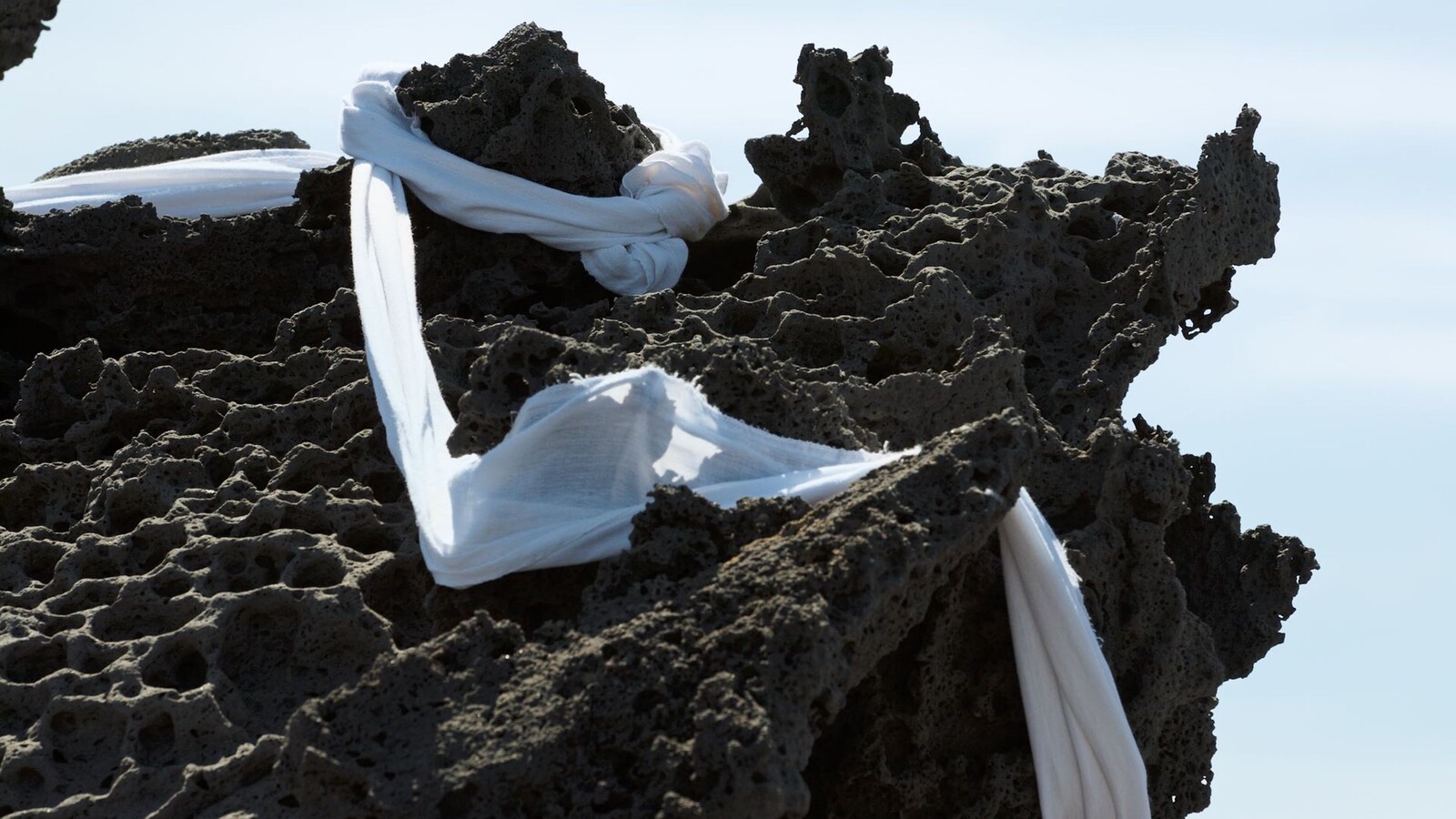A group of elderly women labor silently, weaving and draping long sheets of white cotton around an islet of black volcanic rock. The twelve-minute film installation’s supplementary materials explain that these women have spent much of their lives working together as haenyeo—an occupation dating back centuries, in which women freedive to harvest seafood for their families on Jeju Island, south of the Korean Peninsula—and that this precise setting is one of shamanic significance, associated with the goddess of wind who gives the film its title, Halmang (2023). The Jeju-born, Denmark-based artist’s patiently observational study of these “women of the sea” emphasizes their status as workers by foregrounding, in lingering close-ups, their aged, scarred faces and hands as continuous with the aged, scarred rock. A soundtrack of crushing waves lulls the viewer, until the film’s confronting climactic image: the islet depeopled and draped in the white cotton. This land, born from geological shock and host to centuries of politically contested narrative, will outlive us all.
Halmang gives this tightly focused exhibition at Manchester’s esea contemporary its title and centerpiece. With a refreshing formal lucidity, it literalizes themes of familial and geopolitical ties that have been central to Kaisen’s work in film and video over the last decade and a half. Drawn out throughout the exhibition are the artist’s excavations, via archival materials and moving image works of the embodied and geopoetic afterlives of modern Jeju Island’s key political flashpoints. Most prominent among these is the early 1930s uprisings known as the Jeju Haenyeo Anti-Japanese Movement, with whose historical memory the haenyeo remain closely intertwined. Emphasized too is that the artist comes from a family tradition of documenting the island’s cultural life, and our engagement with the assembled works is framed equally by the vastness of archival sources incorporated and the intimacy of her familial inheritance.
Three books by her grandfather, Yeong Seon—including the memoir Light and Shadow (빛과 그림자, 1997), which formed the basis of an earlier text-based installation by the artist—are displayed in a vitrine directly facing the central video. This combination of works evidences—and suggests an equivalence between—Kaisen’s and her ancestors’ variously mediated approaches to the island’s political life. The artist’s mother and grandmother worked as haenyeo, and her father was a hobby photographer whose camera, later gifted to his daughter, is exhibited alongside photos taken on it by the artist. While the black-box elegance of the film’s presentation alone is unremarkable—awareness of the gallery’s prehistory as a Victorian fish market nicely colors the visitor’s reception of the material, but the wall text’s claim to “intricately connect” the exhibition’s location to Jeju Island seems perplexingly overstated—the synergy between documentary materials and Kaisen’s cine-mediation of similar sources emerges as the exhibition’s aesthetic center.
Further underscoring Halmang’s sincerely felt mode of transgenerational witnessing, the inclusion of two earlier single-channel works, both more than a decade old, demonstrate the artist’s sustained use of moving image to complexify what it means to memorialize, and to simultaneously expand and personalize legacies of cultural, geological, and political precarity. Of the Sea (2013) consists of a single take that depicts the artist walking along the same Jeju shoreline where her ancestors demonstrated eight decades previously. The film is as long as the titular, formerly banned song, associated with the anti-colonial resistance movement, that forms the work’s soundtrack and resonates through to the gallery’s reception and reading space. The feature-length The Woman, The Orphan, and The Tiger (2010), co-directed with Guston Sondin-Kung (billed as a cinematographer on Halmang), begins with a cacophony of female voices speaking in different languages, unsubtitled and layered to the point of indecipherability, accompanying manipulated footage of the Women’s International Tribunal on Japanese Military Sexual Slavery. It’s an appropriately discomforting prelude to a polyvocal documentary which seeks to give audiovisual form to the borderless webs woven by traumatic cultural inheritances.
This film is a breathless, hour-plus montage and its itinerant and choral character offers a stark stylistic contrast with the sparser Halmang and Of the Sea. But all three moving-image works concern themselves with sited ghostly reverberances, making reflexive use of the innately time-based nature of the form and seizing upon the unique capacity of the moving (documentary) image to narrate a simultaneity of places and perspectives. Kaisen’s sensitivity to her medium distinguishes her among a sea of contemporary artist filmmakers who are navigating the emancipatory potential of archives to re-narrate histories embedded in land. A researcher-filmmaker, her films stir and surprise in their embrace of both the intangible and spiritual dimensions of the moving image, and of personal and familial memory. This makes for a group of works that formally enact the spectral presence of past struggle in the present tense, making sensible the intermingling of history and narrative, as live and lived processes.

